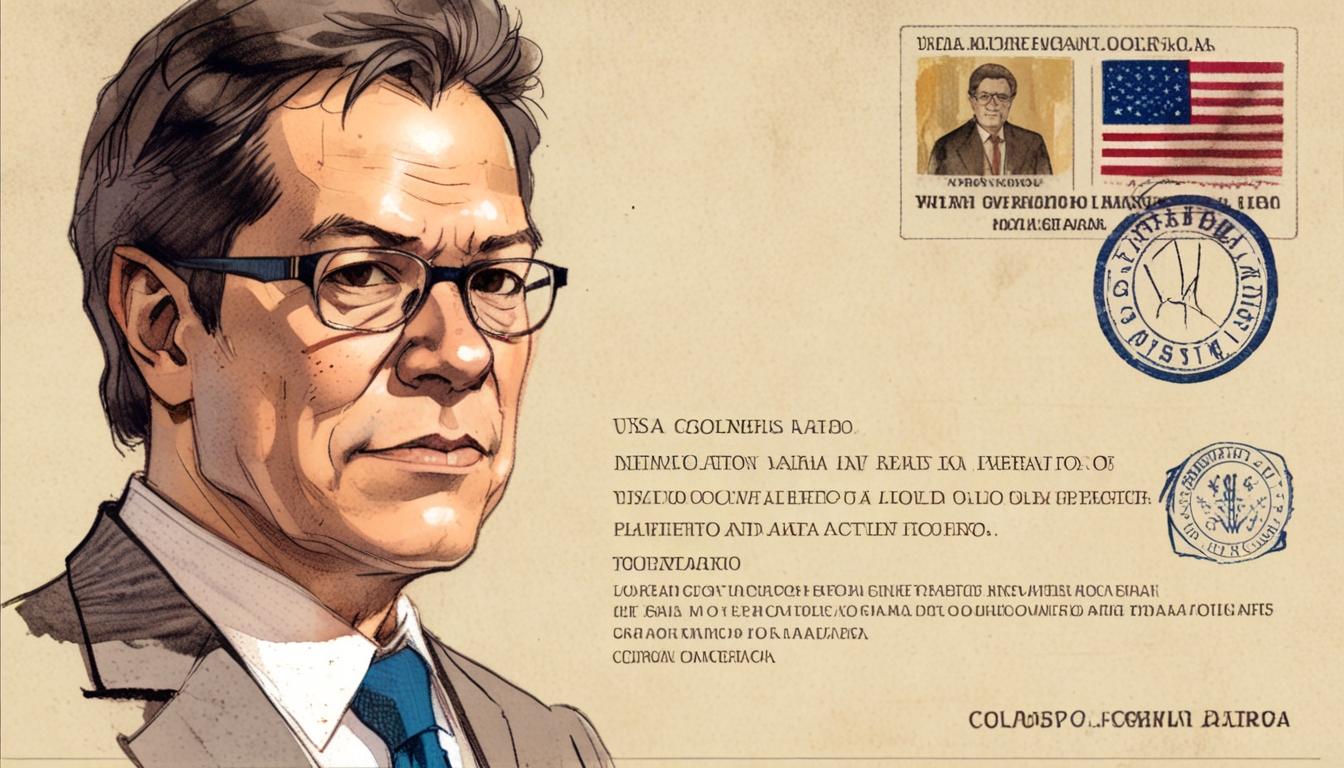Colombian President Gustavo Petro has publicly stated that his visa to the United States has been revoked, though the US State Department has neither confirmed nor denied this claim. Petro made the remarks during a televised cabinet meeting addressing an outbreak of yellow fever, as reported by The City Paper Bogotá.
In his comments, Petro said, “I can’t go [to the US] anymore because I believe they took away my visa,” adding with a chuckle, “I didn’t really need a visa, but anyway, I’ve already seen Donald Duck several times, so I’ll go see other things.” The reference to “Donald Duck” appeared to be a jab at former US President Donald Trump, who has been mockingly called “Donald Duck” by figures such as former New Jersey Governor Chris Christie. Petro is not believed to have met Trump but did visit the White House in 2023 to meet then-President Joe Biden.
A spokesperson from the State Department declined to comment on the visa revocation, citing the confidentiality of visa records. Similarly, a US Embassy official in Bogotá told local media that no formal notification of visa revocation had been issued to Petro.
This development follows a tense diplomatic exchange earlier this year when the US government, under Trump’s administration, halted new visa applications for Colombian nationals. The suspension occurred due to Colombia’s refusal to accept deportation flights of its nationals. The embassy cancelled appointments and informed applicants of the suspension, as detailed by the Associated Press.
Petro had objected to US military AC-130 aircraft being used to transport Colombian deportees, asserting on the social media platform X: “I do not authorize the entry of North American planes carrying Colombian migrants into our territory. The US must establish a protocol of dignified treatment of migrants before we receive them.” He emphasised that “a migrant is not a criminal and should be treated with the dignity a human being deserves,” further insisting that Colombia would only accept nationals on civilian aircraft.
In response to Colombia’s stance, the Trump administration imposed increased tariffs and announced plans for visa sanctions and travel bans targeting Colombian government officials and their allies. Following these pressures, Petro eventually allowed deportation flights to resume but continued to criticise Trump’s deportation policies, especially the removal of Venezuelan migrants alleged to be members of the Tren de Aragua criminal group to El Salvador’s CECOT megaprison.
“No democratic-minded person in Latin America can accept that all of the Venezuelan people in exile are criminalized because of the crimes of the so-called ‘Tren de Aragua,’” Petro wrote on Twitter.
An analysis by Pew Research Group estimated that nearly 200,000 Colombians were living in the US without legal status as of 2022. The Trump administration accelerated deportations, portraying all migrants without formal entry as criminals, despite earlier assurances that removals would primarily target convicted criminals. The contested deportation flights earlier this year included around 200 Colombians, among them at least 20 children and several pregnant women, with no apparent violent offenders aboard.
White House Press Secretary Karoline Leavitt maintained that the administration’s stance was that anyone who entered the US unlawfully is a criminal. She stated at a news briefing: “I know the last administration didn't see it that way, so it’s a big culture shift in our nation to view someone who breaks our immigration laws as a criminal, but that’s exactly what they are.”
This ongoing diplomatic and policy tension highlights the complex relations between Colombia and the United States concerning immigration and deportation practices.
Source: Noah Wire Services
